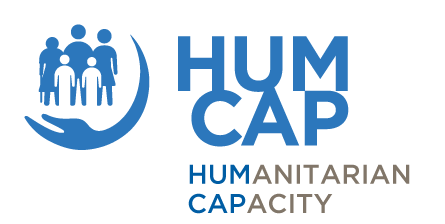I nostri corsi di specializzazione sono diretti a chi ha già esperienza nel settore della cooperazione internazionale e/o degli interventi umanitari e vuole acquisire competenze ulteriori su settori specifici. Le formazioni offerte tengono in considerazione gli standard umanitari internazionali generali (es. Core Humanitarian Standards) e specifici del settore e le conoscenze disponibili a livello globali tramite i netto di settore specifici (global working groups, cluster, practitioners networks e communities) inoltre integrano sempre testimonianze pratiche e case studies degli operatori del settore.
Child protection in emergencies
Course content:
This course aims to strengthen and improve the skills and capacity of emerging child protection in emergencies (CPiE) specialists and other humanitarian personnel’s profiles, providing them with tools to understand the overall global CPiE framework as well as instruments to design, implement, monitor and evaluate key CPiE evidence-based interventions and projects.
Upon successful completion of this course, participants will:
• Be familiar with the main legal documents, instruments and standards CPiE; know and being able to apply the CP principles as stated in the CPMS
• Know the Child Protection Assessment Toolkit and be able to directly use some of the tools to design an assessment for project design;
• Describe the process of identifying common priorities and objectives for a response;
• Know evidence-based child protection interventions in emergencies, such as planning and implementing a Child Friendly Space and community-based mechanisms;
• Be able to identify children’s risks and specific vulnerabilities/groups at risk;
• Understand the provision of individual care through the case management process; understand and apply the best interest of the child, the different steps of case management and measures to ensure protection from abuse, including Sexual Exploitation and Abuse (SEA).
Data:
13/05/2019 – 17/05/2019
Duration:
5 days (in presence)
Venue:
Milan- Italy
Cost:
Full rate 950€ . Early bird 800 €. Multiple subscription can request further 10% discount on the rate.
Language:
English
Nutrition in Humanitarian Assistance
Course content:
The course aims to provide an overview of nutrition interventions implemented in humanitarian settings. It will follow the project cycle steps, so focusing on how to assess malnutrition from a qualitative and quantitative point of view and contextualize underlying causes and challenges, how to design and plan the most suitable intervention and how to monitor it in an effective and efficient manner.
The course will include the following topics:
• a general review of the different types of malnutrition and their direct and underlying causes
• assessing and measuring malnutrition at population and individual level
• common nutritional interventions (CMAM and IYCF)
• monitoring and evaluation mechanisms of nutrition interventions
Additional issues discussed will include:
• Remaining challenges and humanitarian dilemmas related to nutrition
• Integrated programming: food security and WASH plus nutrition interventions. Nutrition-specific and nutrition-sensitive interventions
• The Sphere guidelines and other relevant nutrition standards
The course content is based on the Harmonised Training Package of the Global Nutrition Cluster, the Lancet 2013 Nutrition series and Global Health and Nutrition policies agreed at the World Health Assembly in Geneva.
Data:
27/05/2019 – 31/05/2019
Duration:
5 days (in presence)
Venue:
Milan-Italy
Cost:
Full rate 950 €. Early bird rate 800 €. Multiple subscription can request further 10% discount on the rate.
Language:
English
MEAL – Monitoring evaluation accountability and learning
Course content:
This course provides a comprehensive understanding of Monitoring Evaluation Accountability and Learning (MEAL) concepts and fits them within the logical framework, commonly used to track humanitarian interventions. It also describes methods and approaches for an effective project monitoring and offers an overview of evaluation techniques, standards and criteria. Participants will also familiarize with the concept of learning and how to capture and capitalize lessons learnt and good practices from humanitarian interventions. The current debate on accountability and how this cross-cutting theme is relevant to project/program monitoring and evaluation will also be part of the training.
The course will include the following topics:
• Introduction to the concepts of Monitoring, Evaluation, Accountability and Learning
• How to monitor a project /program; how to set up a monitorning framework an a monitoring plan; choice of indicators, data collection techniques and sampling, data management and analysis;
• How to evaluate a project/program; understanding different types of evaluation (interim, final, real time); evaluation through the DAC criteria;
• Quality in monitoring and evaluation: methods and tools;
• How to adapt monitoring and evaluation to different sectors of intervention;
• The importance of Accountability and how to set up feedback and complaints mechanisms;
• Defining learning and how to learn from a project/program.
Data:
01/07/2019 – 05/07/2019
Duration:
5 days (in presence)
Venue:
Milan- Italy
Cost:
Full rate 950€. Early bird 800 €. Multiple subscription can request further 10% discount on the rate.
Language:
English

